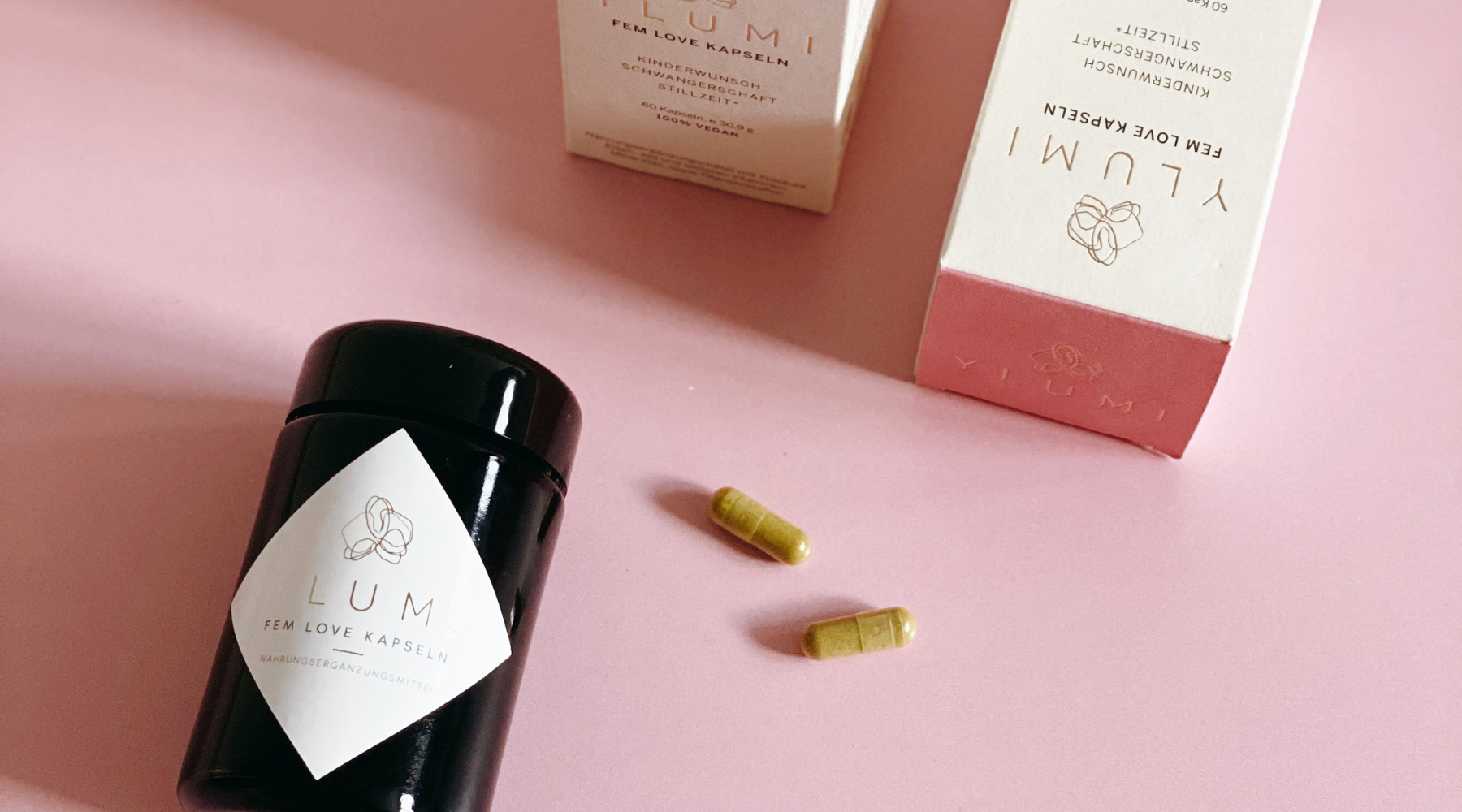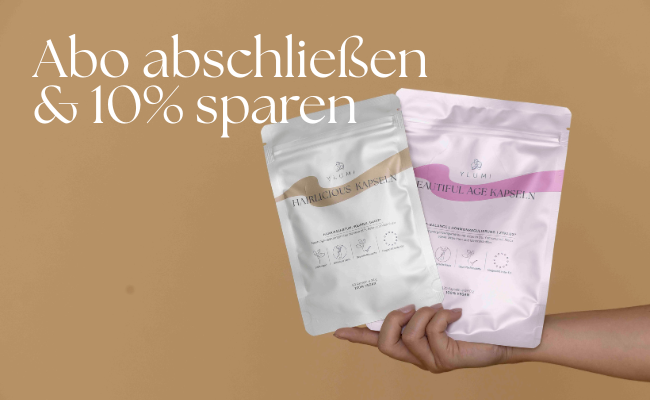
Folic acid: Not only important during pregnancy
Folic acid, also known as folate or vitamin B9, plays a crucial role in our health. It's often only associated with pregnancy, but it's essential for everyone. In this blog post, we take a closer look at the importance of folic acid, daily requirements, possible sources, and potential risks of overdose. We also introduce you to our Fem Love capsules, which are ideal for women trying to conceive, pregnant and breastfeeding women, and general women's health.
1. What is folic acid (folate) and what effect does it have on the body?
Folic acid is the synthetic form of vitamin B9, while folate is the natural form found primarily in food. Both forms are essential for DNA synthesis, cell division, and blood formation. A folic acid deficiency can lead to anemia and, for example, increase the risk of neural tube defects in unborn children. Folic acid also supports the function of the nervous system and contributes to the reduction of tiredness and fatigue.
2. How much folate do you need?
The German Nutrition Society (DGE) generally recommends a daily intake of 300 µg folate equivalents for adults. Pregnant women should consume approximately 550 µg, and breastfeeding women 450 µg daily. For women trying to conceive, an increased intake of up to 900 µg is recommended to minimize the risk of developmental disorders in the fetus.
3. Which foods contain folic acid (folate)?
Folate is found in many natural foods, including green leafy vegetables like spinach and broccoli, legumes, whole grains, nuts, and seeds. Citrus fruits and avocados are also good sources. A varied and balanced diet can help meet your daily folate needs.
4. Can you consume too much folate?
An overdose of natural folate from foods is unlikely. However, when taking folic acid supplements, care should be taken not to exceed the recommended dose.
5. Folic acid when trying to conceive, during pregnancy and while breastfeeding
Folic acid is especially important when trying to conceive, during pregnancy, and while breastfeeding. It reduces the risk of neural tube defects and supports healthy fetal growth and development. Our Fem Love capsules have been specially developed for these phases of life.
Fem Love Capsules: Your ideal supplement
Our Fem Love capsules contain 200 µg of iodine, which meets the German Society for Nutrition (DGE) recommendations for pregnant and breastfeeding women. They also provide an optimal amount of bioactive folic acid (5-MTHF) up to 900 µg to help prevent folic acid deficiency. Furthermore, the capsules are enriched with vitamin B12 to improve overall metabolism and contain 20 to 30 mg of iron, making them ideal for vegetarians and vegans. The formula also includes certified moringa, which is rich in vital nutrients such as vitamin E, calcium, and vitamin B2, which can support women's health during pregnancy and breastfeeding. Our Fem Love capsules are also made in Germany without colorings, fillers, or preservatives, are gluten-free, soy-free, sugar-free, and 100% vegan. All our products are regularly tested by independent laboratories to ensure the highest quality and purity.
Conclusion: Folic acid is not only important during pregnancy, but a vital nutrient for everyone. With our Fem Love capsules, you receive a high-quality supplement specifically tailored to the needs of women trying to conceive, pregnant and breastfeeding women, as well as women's general health.
Sources:
1. German Nutrition Society (DGE) :
◦ Recommendations for folate intake: DGE reference values for nutrient intake
◦ Recommendations on iodine intake during pregnancy and breastfeeding: DGE position on iodine supply
2. National Institutes of Health (NIH) :
◦ Information about folic acid (folate), its needs and effects: NIH Office of Dietary Supplements - Folate
◦ Information on iron requirements during pregnancy: NIH Office of Dietary Supplements - Iron
3. World Health Organization (WHO) :
◦ Guidelines for micronutrient intake during pregnancy: WHO Guideline: Daily iron and folic acid supplementation in pregnant women
4. European Food Safety Authority (EFSA) :
◦ Scientific opinions on iodine and folic acid intake: EFSA Scientific Opinion on Dietary Reference Values for iodine
◦ Recommendations and safety assessments on folic acid: EFSA Scientific Opinion on Tolerable Upper Intake Level for folic acid
5. American College of Obstetricians and Gynecologists (ACOG) :
◦ Recommendations on prenatal care and supplementation: ACOG Committee Opinion: Folic Acid Supplementation




